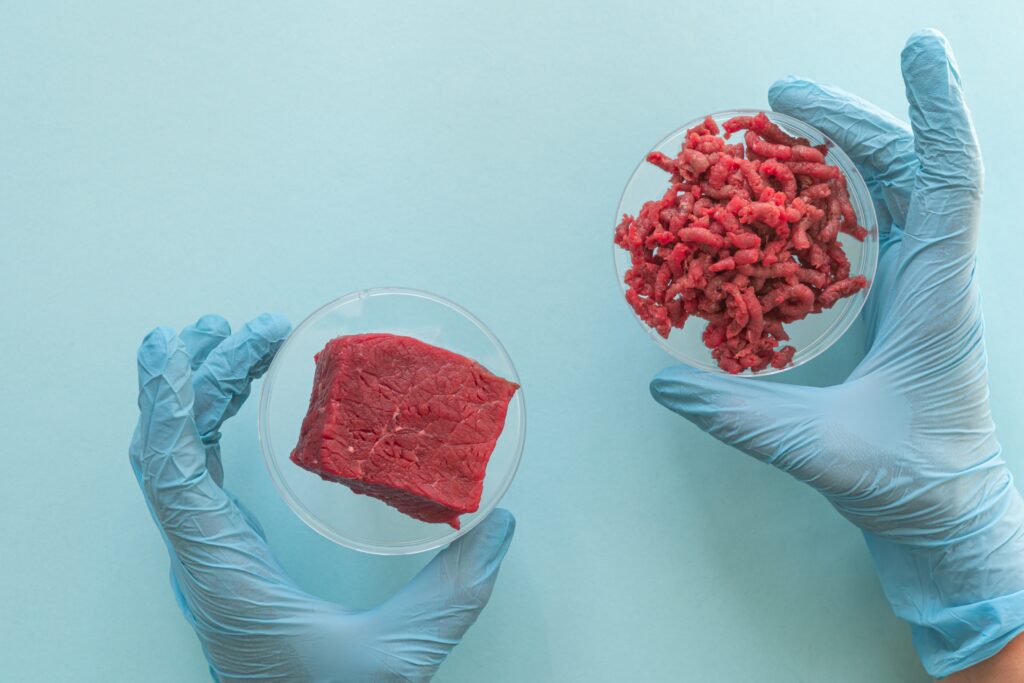FSA Aims to Speed Up Approval Process for Lab-Grown Foods
Lab-grown meat, dairy, and sugar could be available for human consumption in the UK within two years, as the Food Standards Agency (FSA) works to accelerate the approval process for these innovative products. UK companies currently lead the development of lab-grown food technology but face regulatory hurdles that slow down progress. The new measures aim to bring these groundbreaking products to market sooner than expected.
New Regulations to Fast-Track Lab-Grown Foods
The FSA has announced plans to work alongside experts from high-tech food companies and academic researchers to develop new regulations. Their goal is to complete the safety assessments of two lab-grown food products within the next two years. Prof. Robin May, the FSA’s chief scientist, emphasized that consumer safety is the agency’s top priority. “We are designing a regulatory structure that supports innovation while ensuring the highest safety standards,” said Prof. May.
While the move to speed up approval has been welcomed, some critics have raised concerns. Pat Thomas, director of Beyond GM, expressed unease about the involvement of companies in drafting the regulations, fearing a conflict of interest. In defense, Science Minister Lord Vallance clarified that the new approach is “pro-innovation regulation,” not deregulation, ensuring safety while fostering innovation.
Lab-Grown Products Ready for Market
UK-based companies are already prepared to introduce lab-grown products to the market. Ivy Farm Technologies, located in Oxford, has developed lab-grown steaks using cells from Wagyu and Aberdeen Angus cows. The company applied for approval to sell its steaks to restaurants last year, and CEO Dr. Harsh Amin believes faster regulatory approvals could help startups in this sector thrive.
Dr. Alicia Graham, a researcher at Imperial College’s Bezos Centre, has developed a sugar alternative made from gene-edited yeast. Her firm, MadeSweetly, is waiting for approval to sell the product. “The path to approval is not straightforward,” Dr. Graham noted, adding that a clearer regulatory process would benefit the industry.
Concerns and Criticism Over Lab-Grown Foods
While the potential benefits of lab-grown foods, such as reduced environmental impact and improved health outcomes, are widely discussed, some critics caution against rushing their introduction. Pat Thomas, from Beyond GM, pointed out that lab-grown foods are ultra-processed, which could conflict with current public health efforts to reduce processed food consumption. Critics question whether these products will truly deliver the promised health and environmental benefits.
Despite these concerns, the FSA remains focused on ensuring that any lab-grown food entering the market meets rigorous safety standards. The UK government aims to boost job creation and economic growth through this emerging sector. By developing a more efficient regulatory framework, the UK hopes to maintain its competitive edge in the global lab-grown food market.
The Future of Lab-Grown Foods in the UK
The push for faster approvals of lab-grown foods is part of a broader effort by the UK government to position itself as a leader in the global food innovation industry. As more companies develop lab-grown products, the success of these regulatory changes will be crucial to unlocking the potential of lab-grown meat, dairy, and sugar.
For more updates on the developments in the lab-grown food sector, visit EuroNews24.
